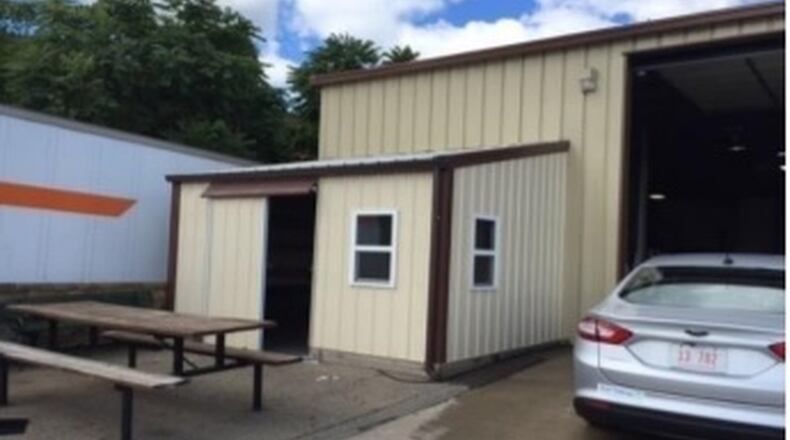It details problems including allowing a vendor to pay costs for three state employees during a training trip to Iowa, failing to train inmates on how to use heavy construction equipment, losing track of farm equipment and letting inmates drive state vehicles.
Related: Prison bus murder: guards didn’t hear a thing
Shortly after the investigation began in July 2017, three state workers — OPI Chief Sheri Duffey, Assistant OPI Chief Todd Cordial and OPI Manager Dan Kinsel — were put on administrative leave. Kinsel then retired; Duffey and Cordial were fired in early 2018.
The report said OPI managers in 2017 decided to deliver a custom-built dark cherry wood conference room table and eight “executive” chairs to state Rep. Larry Householder, R-Glenford, at no charge. Internal e-mails indicate the furnishings cost $6,747. The seal of the Ohio House of Representatives was etched into the table wood and embrodiered on the chair head rests.
In October 2017, after investigators raised questions, OPI invoiced the Ohio House $9,313 for the furniture. The House refused to pay the invoice, saying it didn’t authorize the order. So DRC retrieved the furniture from Householder’s office on Nov. 21, 2017.
Householder said in a written statement that Kinsel suggested OPI could display a conference table at the Riffe Center, where state representatives have offices.
“I agreed to display the table in the Riffe, as a way to promote the good work that the inmates at OPI do. When we learned that OPI had acted improperly, my office asked that OPI pick up their table immediately, which they did,” he said on Thursday.
Related: Former Ohio House speaker Householder looks to return to power
The inspector general report also found:
— Cordial sent two inmates to Greenville to pick up a tanning bed and vending machine he had purchased in May 2016. The prisoners installed the tanning bed at Cordial’s house and set up the vending machine, which Cordial stocked with soda pop, at OPI’s Vehicle Service Center in Columbus. State regulations give vending machine rights to people with visual impairments. OPI didn’t seek a waiver to this regulation until months after the machine was installed.
— Without building permits, OPI constructed a break room attached to a building at the Vehicle Service Center. Dubbed “Sheri’s Smoke Shack,” it had electricity, ceiling and exhaust fans, a space heater and two Adirondack chairs custom-made by prison workers at the Ohio Penal Industry shop. Duffey held meetings in the shack, the report said. After investigators began asking questions, DRC opted to tear the shack down in April 2018.
— OPI built two BBQ smokers at a cost of $6,050 each and reinforced trailers to carry them to rental sites. But there were no business plans for renting the equipment. DRC sold them at a surplus state equipment auction in March 2018 at a loss of $5,200.
— The Vehicle Service Center failed to charge consistent prices or conduct an annual physical inventory of parts; and it allowed inmates to work on personal vehicles before a new policy authorized it.
The most expensive boondoggle identified in the report was DRC’s decision to spent more than $8-million renovating dairy barns at prison farms in London and Marion in January 2015 and then deciding in the fall of 2015 to sell off the state prison farms, which had been operating since 1868.
Related: End of an era: Ohio phases out its prison farms
Work on the dairy barns was left incomplete and the facilities have been idle since then. Paying back the bonds on the project is expected to cost taxpayers more than $13-million.
About the Author

